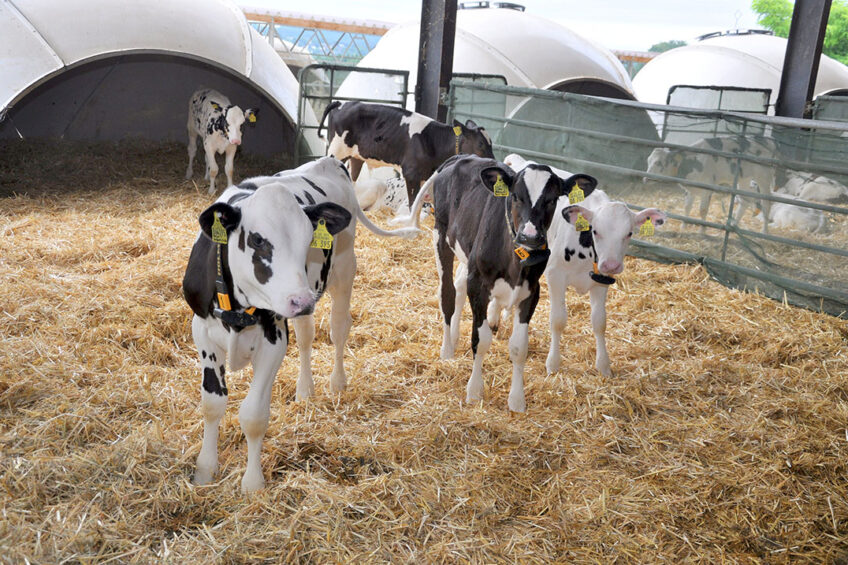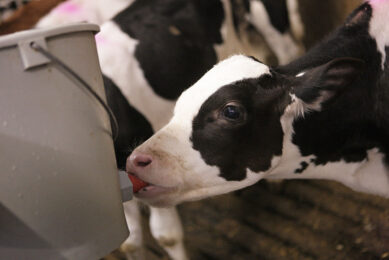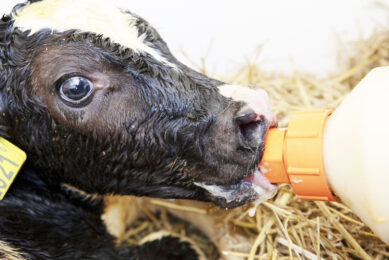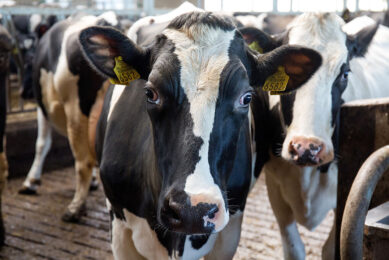Mild weather can cause calf pneumonia or respiratory issues

Dairy farmers that have livestock housed at this time of the year should be extra vigilant for breathing issues caused by milder autumn temperatures.
Unseasonal hotter climatic conditions coupled with higher humidity are creating problems for cattle indoors with some showing signs of sweat, coughing and even some cases of pneumonia.
Of course, there are a number of factors that can cause pneumonia in livestock, but the environment is one of the major contributors. Heat stress has the potential to adversely affect the physiology, passive immunity, and growth of dairy calves, increasing their risk of respiratory disease.
Good ventilation in livestock housing is essential to reduce heat stress, which can lead to bovine respiratory disease (BRD). Also, best management practices and clean, dry bedding are required to reduce the risk during this high alert time.
Cows can also be affected and, given the time of year, farmers may be tempted to close doors on livestock houses because they think the cattle are cold but in fact, the more ventilation that sweeps through the house the better.
A lack of proper ventilation can lead to high moisture levels, slurry gases, pathogens and dust concentrations, which create an adverse environment for dairy cows.
Calf pneumonia costs
Pneumonia is the most common cause of death and poor performance in dairy cattle under 1 year of age with 14.5% of dairy heifers failing to reach their first lactation due to the disease.
Recent research from the Royal Veterinary College in the UK has indicated that more than 40% of calves on commercial farms suffer from pneumonia, which has an average financial cost of £43 per calf.
As well as the cost of treatment, ill health in early life can cause delayed growth rates which leads to delays in breeding and calving age and a depressed level of milk production, overall resulting in a major loss in production efficiency.
Clinical signs of pneumonia in calves
There are 2 types of pneumonia that affect calves: acute pneumonia and chronic pneumonia.
Symptoms of acute pneumonia that farmers need to look out for include calves off their food, dull demeanour, heads down, nasal discharge, coughing and raised temperatures.
Chronic pneumonia is more gradual, with no distinct ill phase and the animal may appear to still eat well but may have a slight nasal discharge, sometimes with an increased respiratory rate and cough.
In order to minimise the risk of respiratory diseases, farmers should consider a vaccination programme. There is a range of vaccines available covering different infectious agents, with different administration methods and activation times.
Vets can advise on the best vaccination programme which should form part of an active animal health plan. Vaccination alone is not a silver bullet to healthier animals and should be complemented with good biosecurity and high standards of nutrition and management.
Increased flies
The milder weather has also seen increased numbers of flies this summer which are continuing into the autumn. In these conditions fly numbers multiply fast especially when one fly can lay thousands of eggs causing major irritation to cattle and the farmer. Flies can spread disease, such as mastitis, and therefore also affect the productivity of dairy cows.
Even though it’s the start of the housing period and cattle are off the grass, an effective fly control programme, with pour-ons as one method, should be administered on the herd to control fly numbers.









